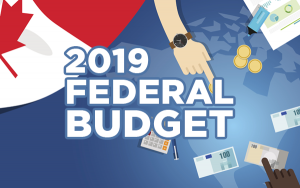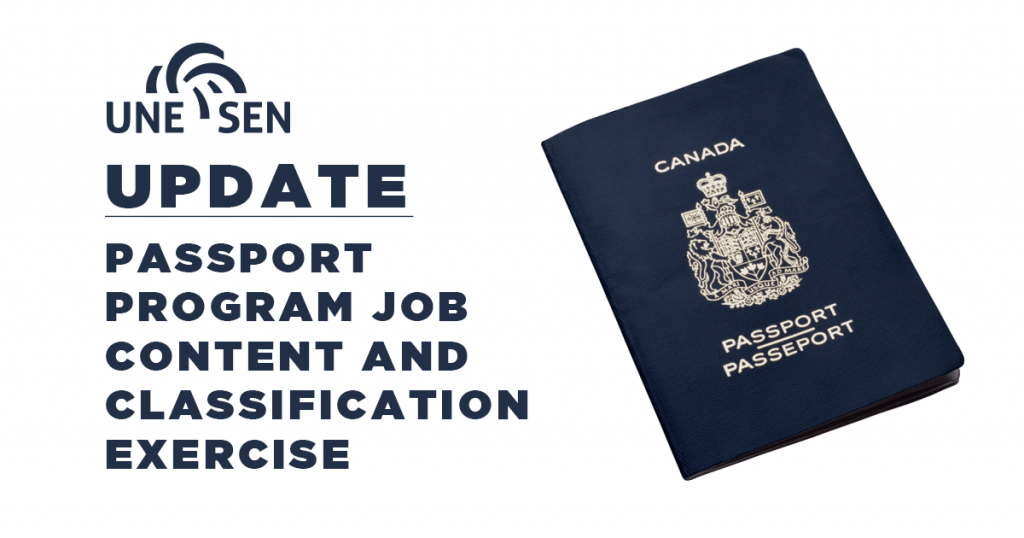
Complementary to the PSAC analysis, UNE went through the 2019 federal budget. Here is a summary of the measures that matter to you as a UNE member.
Phoenix and NextGen
“To continue progress on stabilizing the current pay system, Budget 2019 provides an additional $21.7 million in 2018–19 to address urgent pay administration pressures (partially sourced from existing departmental funds), and proposes to invest an additional $523.3 million over five years, starting in 2019–20, to ensure that adequate resources are dedicated to addressing payroll errors.”
PSAC and UNE welcome these additional funding measures to address the Phoenix fiasco, but as pointed out by PSAC, “they fall significantly short of what is required to end the pay nightmares of Canada’s federal public service workers.”
We are happy that the Canadian Revenue Agency (CRA) will be receiving an additional $9.2 million in 2019–2020 for any telephone enquiries.
As for NextGen, there is not much detail in this budget plan other than public sector unions will be consulted during the review process.
Gender Equality
The gender-based analysis plus (GBA+) is work in progress and Budget 2019 allocates $1.5 million to the Treasury Board Secretariat (TBS) over five years. TBS will work with other departments in the collection of GBA+ data.
The new Department for Women and Gender Equality will receive $160 million over a five-year period. This important investment will allow strengthen its mandate.
Extra Funding for the LGBTQ2+ Secretariat
$3.6 million is being allocated to the LGBTQ2+ Secretariat over three years. The Secretariat collaborates with stakeholders to inform the “Government’s activities on issues related to sexual orientation, gender identity and gender expression.”
Support for Racialized Workers
PSAC and UNE “welcome the investment of $45 million over three years to support a new Anti-Racism Strategy along with an Anti-Racism Secretariat. We hope the government will integrate PSAC’s recommendations in making a stronger commitment to employment equity, accessible and transparent staffing processes and reconciliation with the Indigenous community. The $25 million over five years for projects and capital assistance to celebrate, share knowledge, and build capacity in Black Canadian communities is long awaited funding.”
Parks Canada
We can read at page 300 that $19 million will be allocated to fund capital projects in national parks, national marine conservation areas and national historic sites. That does not address major concerns raised in a report commissioned by Parks Canada. The agency has “deferred up to $9.5 billion in badly needed work – and ought to spend up to $3.3 billion on top of that to cope with the threat of climate change.” “When reviewed, 24 per cent of the asset[s] were assessed as being in good condition, 36 per cent in fair condition, and 40 per cent in poor or very poor condition,” says the report. In other words, this budget does not address a systemic situation that Parks Canada has been facing for years.
Lack of Measures Precarious Workers
This budget lacks measures to address the issue of using temporary agencies and casual contracts, and to protect the most vulnerable workers through a federal workers’ compensation plan.
Social Security Tribunal
Following the recommendations of a 2017 independent review of the Social Security Tribunal of Canada and comments expressed by Canadians trough consultations, the government is trying to fix a situation created by the Harper Government. “To make the recourse process for EI, CPP, and OAS easier to navigate and more responsive to the needs of Canadians, Budget 2019 proposes to invest $253.8 million over five years, starting in 2019–20, with $56.7 million per year ongoing.”
Social Development Minister Duclos has recently declared that “the government will bring back the three-person hearings for the first layer of benefit appeals — in a body separate from the tribunal — and retain the tribunal’s single arbitrator for the second, and final, layer.” UNE welcomes this funding.
Federal Public Service Dental Plan Coverage
These improvements for the dental coverage follow an important PSAC victory. After lengthy negotiations and an arbitration process, PSAC won the arbitral decision for the Public Service Dental Care Plan late last year.
Making Workplaces more inclusive
The government has pledged $12 million over three years to support employment for persons with intellectual disabilities and Autism Spectrum Disorder (ASD).
As for federal workplaces, “[t]he [g]overnment has committed to hiring at least 5,000 people with disabilities over the next five years.” In order to reach that goal, it will spend $13.7 million over that period of time.
Staffing at Immigration, Refugees and Citizenship Canada
We welcome investments in staffing at Immigration, Refugees and Citizenship Canada (IRCC).
Indigenous Communities across Canada
Budget 2019 includes 24 measures for Indigenous peoples, totaling approximately $4.7 billion. Federal measures towards Indigenous Peoples include:
- $127 million to create the National Council for Reconciliation
- $1.2 billion over three years for Jordan’s Principle
- $739 million over five years for water
- $333.7 million over five years + $115.7 million ongoing to implement the Indigenous Languages Act
- $327.7 million over five years for post-secondary education
- Loan forgiveness and reimbursement for comprehensive claims and research for specific claims
As pointed out in the PSAC article, there is “no dedicated funding for Indigenous women’s organizations, to support and carry out the necessary work that will come out of the recommendations of the [National Inquiry into Missing and Murdered Indigenous Women and Girls]. This is a glaring gap.”
Canada’s North
Budget 2019 focuses on four areas:
- People: options for post-secondary education are expanded; Northern Isolated Community Initiatives Fund established over five years; measures to improve people’s health and well-being
- Economic Development: measures in resource development, innovation and business growth
- Infrastructure: one major announcement is restoring rail service to Churchill, MB; more funding for more infrastructure, cleaner energy and high-speed Internet access
- Science and Environment: more support provided towards science and research, and conserving the Arctic environment


